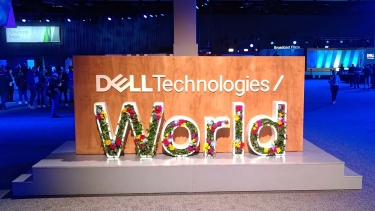1. On-prem is going to make a very big comeback
The last couple of years have seen cloud-related bill shock being one of the dominant cloud stories. Pricing models, which counterintuitively ramp-up exponentially the more you use the product, reached a point where an entire industry sprouted that sought to optimise and reduce cloud spend.
With Ai set to dramatically increase compute costs, the savings associated with performing Ai token generation on site are proving to be dramatically more attractive. Dell put the figure at 73 per cent cheaper. Whatever it is, it’s enough for many companies to finally take the step to repatriate their data having previously considered it after weathering cost, legislative, governance and compliance headaches.
We’ve also been hearing, consistently, that customers are wanting their Ai tech to be kept local because putting company IP in the hands of third-party public cloud can not be trusted for data protection reasons. Security is also a major factor with air-gapping, zero trust and authentication all being top requirements.
Still, even when pressed, Dell’s new Ai Senior VP of Ai Strategy, Matt Baker, wouldn’t gloat about being right about costs all along – saying that renting other people’s stuff [in the cloud] wasn’t actually cheaper than on-prem – he was just genuinely relieved that the industry was finally agreeing with him.
2. Dell is arguably best placed to supply local Ai data centers
At the recent Nvidia partner conference, Jensen Huang name-checked an enormous number of top-tier companies that partner with Nvidia. He also made the point that Nvidia’s technologies were used extensively by the major cloud hyperscalers.
However, he also name-checked Michael Dell in the audience and subsequently joined him on stage at the Dell Technologies World keynote and it subsequently became apparent that Dell really is going to be one of the primary suppliers of Nvidia’s transformative Ai technologies - which are not used by the hyperscalers (who build their own). This is not a message that Dell has been ramming down our throats, but one that keeps coming up in partner conversations. We expect Dell to be much wealthier when the next conference comes around.
3. Trust, governance and the negatives surrounding Ai need much more attention
Everyone we’ve spoken to has been full of excitement and positivity surrounding Ai and, refreshingly, its not all been in the form of repeated talking points. Furthermore, each Dell business unit has its own positives and answers have generally been very organic.
However, whenever questions have been asked about the negative uses of Ai – including questions from Indian media about deep-fakes affecting the Indian general election – among other issues, the answers stop rolling off the tongue.
This isn’t so much in a way where executives are seeking to find a political answer to the question - the sense is that they’ve simply not thought about it. And they really should.
4. Microsoft’s CoPilot+ announcement was unfortunately timed
While Dell Tech World is largely enterprise-infrastructure focused, the company is also quite well known for making PCs – especially laptops. This was glossed over farcically quick in Michael Dell’s keynote but apparently Microsoft was announcing new CoPilot+ laptop technology, on stage, at the exact same time.
We subsequently learned that the new, [Dell] Snapdragon-based Windows laptops – with their almost 30-hour battery lives and extensive Windows application compatibility – will likely cost similar to Intel-AMD equivalents and be seen as attractive to businesses who want better future proofing as well as the Ai-related benefits.
Still, having multiple forms of CoPilot in the market is doubtless going to be confusing and we’ll have to try the devices to find out what their limitations and potential may be.
We also learned that NPUs might have found their killer app – beyond improving the background blur efficiency in Zoom calls(!) According to CrowdStrike, NPUs are capable of reducing its local security client’s CPU usage from 40-50 per cent down to less-than one per cent. If so, every security provider is going to need to overhaul their offerings, erm, now.
5. Michael Dell isn’t the best on stage but...
Looking back, we were probably a bit harsh on Michael Dell’s keynote. It glossed over and rushed through many important details, focused a bit too much on gushing personal relationships with on-stage guest partners, focussed too much on new server hardware products and wasn’t helped by Michael himself squinting at the marketing-approved script he had to read out. However, having been to partner conferences from HP, Intel, AMD and Nvidia in recent times, the subsequent observations that he’s more of an interoverted geek seem to carry weight.
We can now actually appreciate that the relatively brief keynote did not repeatedly labour the same talking points over and over again like some others did and that it’s really not fair to compare him to the likes of Jensen Huang who can hold an entire Arena in the palm of his hand, talking tech, for two hours.
One day later and it’s refreshing to keep hearing new, genuine use-cases about Ai rather than hearing the same, approved-language talking points over and over again with a bit more emphasis each time.






